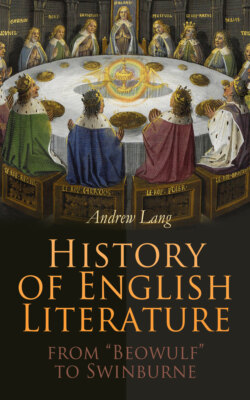Читать книгу History of English Literature from "Beowulf" to Swinburne - Andrew Lang, Robert Kirk - Страница 52
На сайте Литреса книга снята с продажи.
The Tale of Troy.
ОглавлениеThe story of Troy had a hold on the mediaeval mind only less strong than the story of Arthur. In early English, at the end of the fourteenth century, we find the romance in the revived Anglo-Saxon alliterative form; it is the "Geste Hystoriale" concerning the Destruction of Troy, and the story is told once more in the rhyming couplets of the "Troy Book". The manuscript of the "Troy Book" is marked "Liber Guilielmi Laud, Archiepiscopi Cantuar et Cancellarii Universitatis Oxon 1633". (The book of William Laud, Archbishop of Canterbury and Chancellor of the University of Oxford.)
The author of the alliterative romance begins by saying that learned men wrote the history in Latin, but that poets have corrupted it by fables and partisanship. Homer, he says, was notoriously partial to the Greeks; moreover, he introduced incredible gods fighting like men. Ovid, on the other hand, was "honest"; Virgil was true to the rightful cause, that of Troy; but the best authority is Gydo (Guido de Colonna).
Such was the nature of historical criticism as understood by the mediaeval romancer. For love of lost causes, and, as descendants of the Trojans through the Brut of mediaeval myth, the romancers detested the Achæans, the conquering Greeks.
